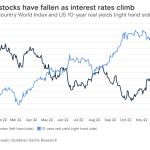China has remained a firm advocate of an open global economy, with proactive actions taken and across-the-board progress made in its opening-up endeavors.
At the 29th Asia-Pacific Economic Cooperation Economic Leaders’ Meeting, China reaffirmed its resolve to open up wider to a high standard, calling for efforts to actively expand opening-up and comprehensively upgrade regional economic cooperation.
Consistent opening-up endeavors, alongside steady economic growth over the past decade, have made China a sought-after destination for global investors.
In 2021, foreign direct investment in the Chinese mainland, in actual use, surpassed 1 trillion yuan (140.18 billion U.S. dollars) for the first time, up 62.9 percent from the 2012 level and ranking second globally.
Despite a global economic slowdown this year, foreign funds flowing to the country expanded 14.4 percent year on year to nearly 1.09 trillion yuan in the first 10 months.
Bai Ming, a researcher with the Chinese Academy of International Trade and Economic Cooperation under the Ministry of Commerce, highlighted China’s stable economic performance, unwavering opening-up policy, optimized business environment and stronger protection of the legitimate rights and interests of foreign investors as key factors behind its strong appeal.
After crossing the 100-trillion-yuan threshold in 2020, China’s gross domestic product (GDP) further expanded to over 114 trillion yuan last year, contributing over 30 percent to world economic growth.
Back in 2012, its GDP stood at around 53.86 trillion yuan, accounting for about 11.5 percent of the global total.
Such robust growth has shored up trade expansion. China has now become a major trading partner for more than 140 countries and regions, with its trade in goods and services totaling 6.9 trillion U.S. dollars in 2021 and securing the top position globally for two consecutive years.
The country has also taken the initiative to set up multiple platforms to promote free trade in products and services. Despite disruptions caused by the pandemic, multiple expos have been hosted, including the China International Import Expo, the China International Fair for Trade in Services, and the China International Consumer Products Expo.
As the country seeks to open its door wider with a more market-oriented and law-based approach, institutional opening-up has been made a prominent hallmark.
With a shorter negative list for foreign investment, the landmark Foreign Investment Law, and the first negative list for cross-border services trade in Hainan Province, China has been unleashing institutional dividends to expand development room for foreign enterprises and share its super-sized market.
As an upholder of free trade, the country has also been working to reduce trade barriers with more partners, with 21 pilot free-trade zones set up at home and 19 free-trade pacts signed across the world over the past decade.
The Regional Comprehensive Economic Partnership — the world’s largest free-trade deal — is a case in point. Its implementation, starting this year, is expected to help cut trade costs among member countries and produce tangible benefits for enterprises.
Under the China-proposed Belt and Road Initiative, business ties along the route have been growing. As of the end of August, China’s accumulative volume of trade in goods with countries along the Belt and Road reached about 12 trillion dollars.
After a decade of opening-up endeavors, China has seen increased foreign investment utilization, improved legal protection, a more open market access for foreign capital and a more level playing field, said Xia Qing, an official with the National Development and Reform Commission.
To further align itself with high-standard international rules, China has pledged to continue to advance its accession into the Comprehensive and Progressive Agreement for Trans-Pacific Partnership and the Digital Economy Partnership Agreement.
With a population of 1.4 billion and a middle-income group that exceeds 400 million and is expected to expand further, the country boasts the most promising market in the world.
At a time when the global economy is plagued by rising protectionism and other tough challenges, China, marching toward modernization and firmly committed to opening-up, is set to create fresh opportunities for global development.









